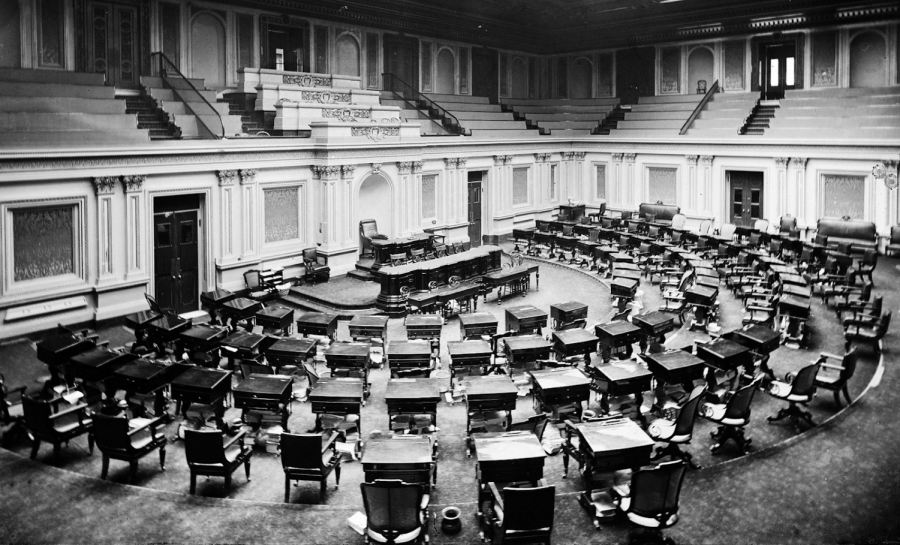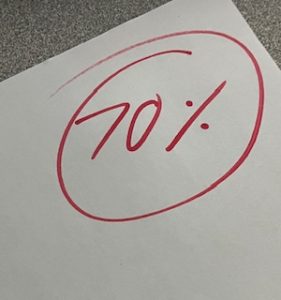The Minority Dilemma: An analysis of the filibuster and its stranglehold on Congress
March 22, 2021
“Stronger than all the armies is an idea whose time has come” were the words of Victor Hugo, a famous poet and thinker who stood as a beacon for geopolitical advancement. This quote gave immense importance to a fervent speech by Senate Minority Leader Everett Dirksen (R-IL), as he spent each passing week imploring his Republican colleagues to support the 1964 Voting Rights Act. Before this, however, enough Republicans would have to vote in favor of ending the longest senatorial filibuster in American history.
This act of obstruction began when 19 Senators from different Southern States declared their fervent opposition to the bill, which was originally proposed by John F. Kennedy and presented to Congress by Lyndon B. Johnson’s administration. Speaking for hours on end, this coalition of Dixiecrats would bar the passage of a landmark bill that sought to enshrine the civil rights of African Americans as law. Strom Thurmond (R-SC), spoke for 24 hours and 18 minutes- the longest senatorial filibuster speech to this day.
Southern Democrats filibustered the Votings Rights Act for 60 days. Had Dirksen not convinced 26 of his colleagues to break the Filibuster, the 1964 law may not exist today. The anomalies that would remain- the disenfranchisement of ethic minorities in the South and across the country- would rid our nation of any moral integrity. The efforts of Dirksen to break the filibuster were commendable, but they should not have been necessary.

What is the Filibuster?
The filibuster, a century-old relic of the Senate, has historically enabled the minority party to obstruct the passage of most congressional legislation. Since the 1970s, its use has spiked. This is reflected by the rising number of cloture votes, which is the technical term for any motion to end a filibuster. Despite there always being an option to file a cloture motion, this graph evidently shows how cloture is not always invoked by a majority vote. With the exception of judicial nominations, most legislation taken up by the Senate can be filibustered by a minority, since it is unlikely that the Democratic or Republican parties will reach 60 members in the foreseeable future.
To state it briefly, the filibuster defiles the will of the people and disregards the ideals advocated by Hugo: the voice of a majority takes precedence over any partisan aspirations in a democratic institution. This “voice” is represented by the election of public officials who fight for an idea consented to by the governed. To obstruct passage of something desired by a majority is to act against public interest.
Today’s Outlook
It is true that a minority caucus can state their objection to any bill presented by the majority. By doing so, they would establish a platform for their party in future elections. An example of this occurred during the lead-up to the 2010 Midterm Elections. Republicans, whilst in the minority, created a “Tea Party” platform that advocated for minimal government spending and personal responsibility. Most notably, they declared their opposition to then President Obama’s health care plan. This resulted in a net gain of 63 house seats and 6 senate seats. Eight years later, Democrats enjoyed similar successes after running on a message of preserving the Affordable Care Act.
These examples embody how a minority caucus should act. After voters propel one party to a majority, the other must make the case as to why the majority agenda is bad for America. The next election would, therefore, be a referendum on two opposing sets of ideals. Instead, the filibuster gives those out of power the option to stall any issue taken up by Congress. After Congress is rendered dysfunctional by the public, politicians from the minority caucus can redirect blame to the majority party for political gain.
The classic argument against abolishing the filibuster is that without the right to stall a bill disliked by several members, bipartisanship and minority representation would cease to exist. Senator Mitch McConnell (R-KY) argued that recent attempts to abolish the filibuster are “destroying the Senate as we know it.”
The question remains, however, as to whether the filibuster should have more limitations. While it is true that cloture votes need bipartisan support in today’s climate, the rights of a majority to act on an agenda they promised to the American people are effectively constrained by filibusters. Any idea “whose time has come” after gaining the approval of voters can be filibustered out of existence. Unless we eliminate filibuster in its entirety, Southern Dixiecrats won’t be the only ones known for pulling off a 60-day filibuster.








